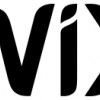
It is California's program to provide health insurance coverage under the "Affordable Care Act" (ACA), otherwise known as Obamacare. In 2018 the penalty for not having insurance is $695 per uninsured person ( up to a maximum of $2085 in a family) or 2.5 % of the total household income over the filing threshold. If you do not enroll during this open enrollment period you cannot enroll for individual health insurance except for limited "special enrollment" reasons.
We have short term medical policies to cover you after this period, but they do not qualify as ACA (Affordable Care Act) compliant. They can only cover you for 90 days maximum per policy, with some policies allowing you to renew. 1 2018 "Open Enrollment" dates for Medicare are 10/15/17 through 12/7/17. 2) These dates apply to Advantage Plans, Supplemental plans and Part D (pharmacy) plans.
3) If you are currently on an Advantage plan (plans where you sign over your part A & B to the insurance company) Medicare is the secondary payer.
We have short term medical policies to cover you after this period, but they do not qualify as ACA (Affordable Care Act) compliant. They can only cover you for 90 days maximum per policy, with some policies allowing you to renew. 1 2018 "Open Enrollment" dates for Medicare are 10/15/17 through 12/7/17. 2) These dates apply to Advantage Plans, Supplemental plans and Part D (pharmacy) plans.
3) If you are currently on an Advantage plan (plans where you sign over your part A & B to the insurance company) Medicare is the secondary payer.
Services
All individual plans sold in California must be ACA - the Affordable Care Act -otherwise known as Obamacare, compliant.
In 2018, the penalty for not carrying health insurance is the greater of $695 per uninsured person (up to $2085 for a family) or 2.5% of the total household income over the filing threshold.
All individual plans sold in California must be ACA, Affordable Care Act (otherwise known as Obamacare), compliant.
In 2017 the penalty for not carrying health insurance is the greater of $695 per uninsured person (up to $2085 for a family) or 2.5% of the total household income over the filing threshold, whichever is greater.
In 2018, the penalty for not carrying health insurance is the greater of $695 per uninsured person (up to $2085 for a family) or 2.5% of the total household income over the filing threshold.
All individual plans sold in California must be ACA, Affordable Care Act (otherwise known as Obamacare), compliant.
In 2017 the penalty for not carrying health insurance is the greater of $695 per uninsured person (up to $2085 for a family) or 2.5% of the total household income over the filing threshold, whichever is greater.
Individuals, couples or families making less than 400% over the Federal poverty level may be eligible for monthly or annual subsidies to cover the expense of their health insurance premiums.
Usually, only enrollees whose income is less than 300% qualify for a monthly premium subsidy.
Because the financial component of the Covered CA application is vitally important in achieving the most accurate subsidy, I prefer to work on-line with my clients to assess whether the program meets their needs and make sure that they receive the correct subsidy with no future reporting problems.
Usually, only enrollees whose income is less than 300% qualify for a monthly premium subsidy.
Because the financial component of the Covered CA application is vitally important in achieving the most accurate subsidy, I prefer to work on-line with my clients to assess whether the program meets their needs and make sure that they receive the correct subsidy with no future reporting problems.
Most Americans financially live "on the edge" and have little to no savings.
If the one or both income producers in a family die, what happens to the family?
How will the survivors pay for the mortgage, credit cards, car, medical bills and the other day to day expenses we all face?
Without adequate life insurance, the surviving members of the family may face the loss of lifestyle, home or even bankruptcy.
Most Americans do not stay with one company throughout their careers and converting a group life policy is usually expensive.
If the one or both income producers in a family die, what happens to the family?
How will the survivors pay for the mortgage, credit cards, car, medical bills and the other day to day expenses we all face?
Without adequate life insurance, the surviving members of the family may face the loss of lifestyle, home or even bankruptcy.
Most Americans do not stay with one company throughout their careers and converting a group life policy is usually expensive.
In the USA, anyone who is 65 and has signed up for their part A and B Medicare Card is eligible to enroll in a Medicare approved plan.
Medicare only covers 80% of most procedures and has outpatient and hospital annual deductibles.
Medigap supplemental or Advantage plans cover most of the remaining 20%.
This plan is a plan in which Medicare is secondary payee and the insurance company you select is the primary payee.
These plans usually are offered in an HMO format where you have a primary care doctor who is a member of a named medical group who is the gatekeeper who refers you to specialist in his medical group network.
Medicare only covers 80% of most procedures and has outpatient and hospital annual deductibles.
Medigap supplemental or Advantage plans cover most of the remaining 20%.
This plan is a plan in which Medicare is secondary payee and the insurance company you select is the primary payee.
These plans usually are offered in an HMO format where you have a primary care doctor who is a member of a named medical group who is the gatekeeper who refers you to specialist in his medical group network.
Reviews

Be the first to review Rischel Insurance Services.
Write a Review